No, I was not getting written up in the blue pages!! I had been invited there to contribute to and hear ideas about an AQ course they are developing, on creating safe spaces for and teaching LGBTQ students. (It's the first Additional Qualifications course of its kind in the whole world, apparently!)
Tempted as I am to go off on a rampage about how I feel/felt about the OCT, and how that prejudice of mine was seriously challenged by today's extremely positive experience, or to write a long commentary about how incredible it felt to walk into a room filled with my professional colleagues where -- for once -- I was not in the minority, I will resist those temptations, and instead focus this blog post on perhaps the most life/career-altering part of the day for me: The introduction to "Open Space" facilitation format.
This "unfacilitation" is profound in its effectiveness; although clearly a lot of preparation is put into the day, there is no agenda, and few guiding principles, other than the idea that we are to engage in three conversations if we want to, two before lunch, and one afterwards, and that there will be some closing circle activities at the end of the day.
Some folks were uncomfortable that we were not starting with introductions so that we'd know who was in the room, but the "facilitators" encouraged us to trust the format, as they didn't want roles and titles --which had purposely been left off of our name tags -- to drive our preconceptions of who people were and what they brought to the "table" (I put that word in brackets because in fact there weren't any. Tables, I mean. People sat at first in a large circle, and then moved to various spaces in the room and throughout the two floors of the building we were in.)
Basically, the day unfolded like this: We were given a theme about which to think and develop inquiry questions or subtopics which we wanted to explore further. Anyone with a particular theme in mind was invited to write the title of their topic on a large sheet of paper, and take a sticky note off the rooms assignment board, and stick it on their sign, and long with their name. The topic signs were then posted in a large "market place", so that other participants could see what different sessions, or conversations, were on offer, and choose to join one if they so wished.
Almost immediately, people started to collaborate: As they noticed similar themes being posted, they approached other "group leaders" to see about combining conversation groups. We also worked together to ensure that there was a rich variety of sessions spread out amongst the three time slots so that everyone would get to go to a topic of importance to them.
I went to a session for a bit, and then left to "buzz in" to another session that had caught my eye earlier. Then I went off to facilitate a topic I had posted; we started with only two in the group, and then by then end of the 45 minutes, we had over 10. After lunch, I facilitated another topic. Ideas were captured by a scribe on chart paper which had been left around the rooms, and voice recorders were also available (apparently the OCT will transcribe as much as they can.)
The day ended with everyone coming back together into a large circle, and then we all introduced ourselves and our current roles, which somehow no longer seemed important, after we had had the chance to engage with so many different voices on an individual level!
When you've been teaching and facilitating workshops as long as I have, it becomes a rare day indeed when you stumble across a truly transformative format.
Don't get me wrong; While learning about various teaching strategies and topics in the workshops I attend, I often pick up new facilitation tips and tricks which I sometimes adopt and add to my own facilitation repertoire as a presenter. But it's frequently a case of a new twist on an old theme. Open Space Technology is a whole new theme!!!
I can't wait to try it out with a group of teachers this summer, and hopefully with a group of students, if I can find a willing co-host at my school. :-D
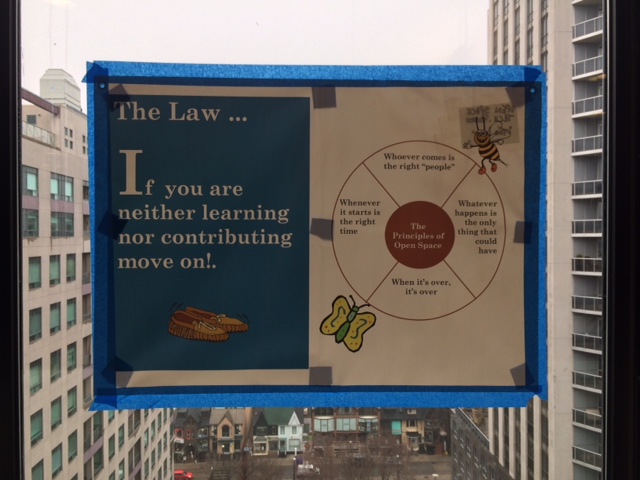
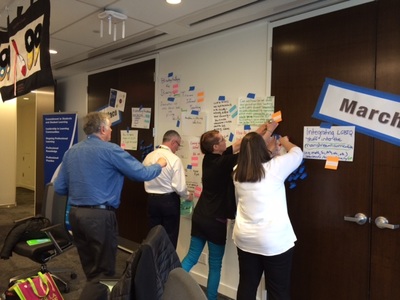
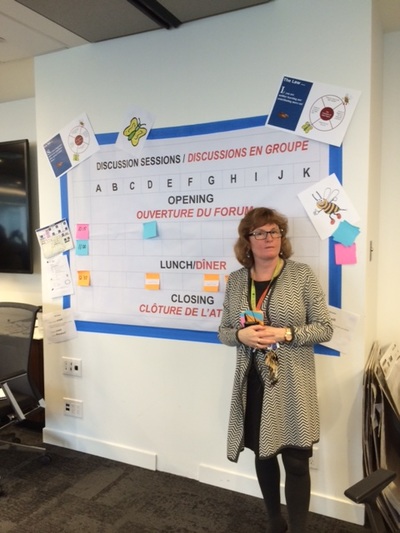
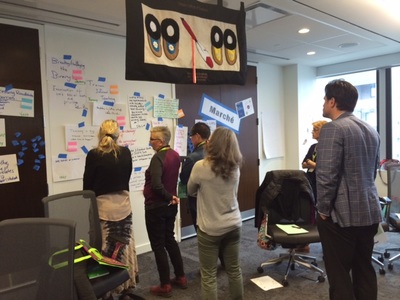
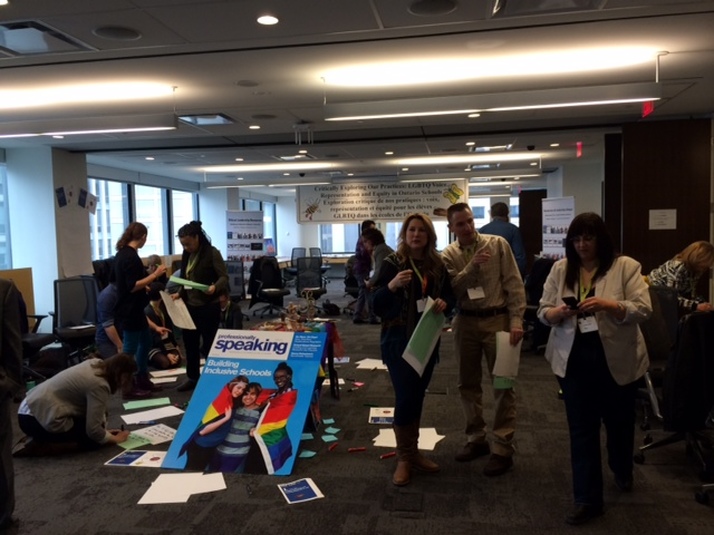


 RSS Feed
RSS Feed